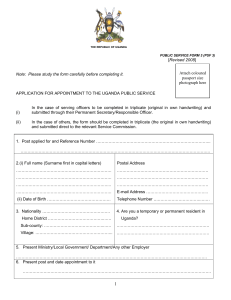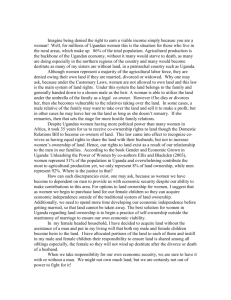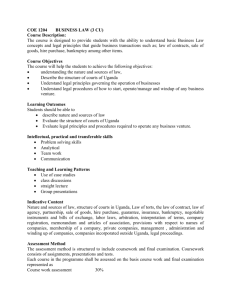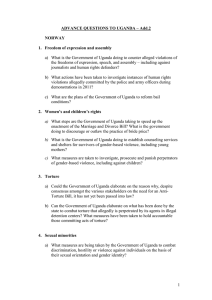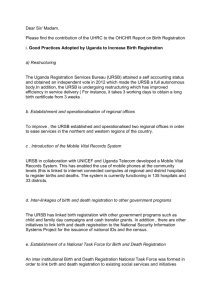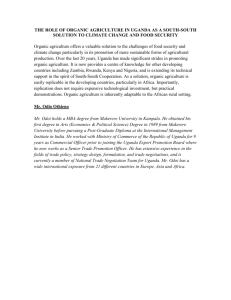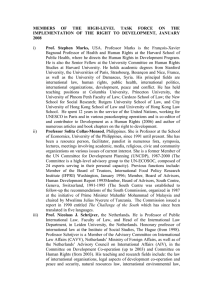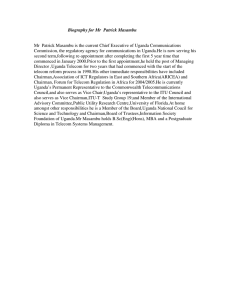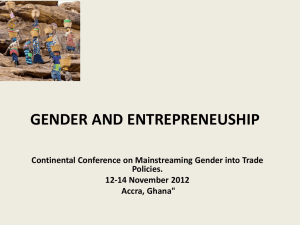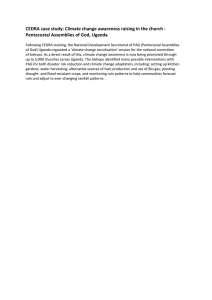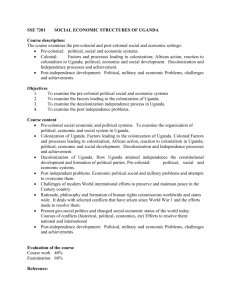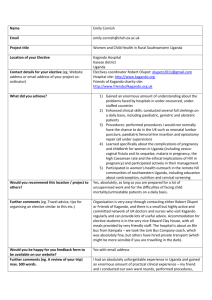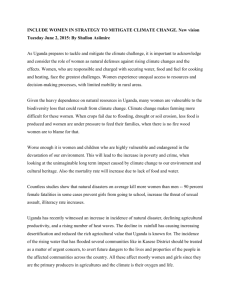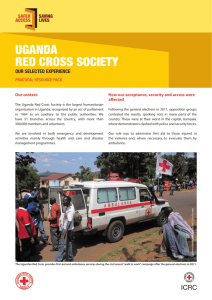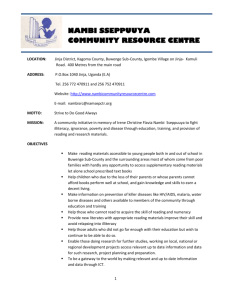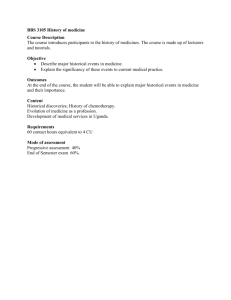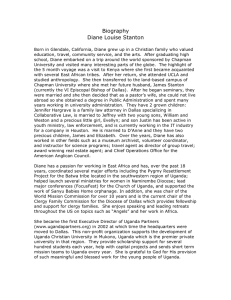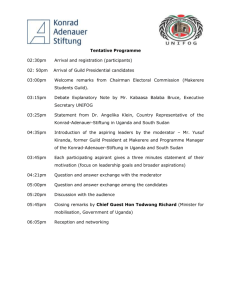LAW 3214HUMAN RIGHTS IN THE DOMESTIC PERSPECTIVE
advertisement
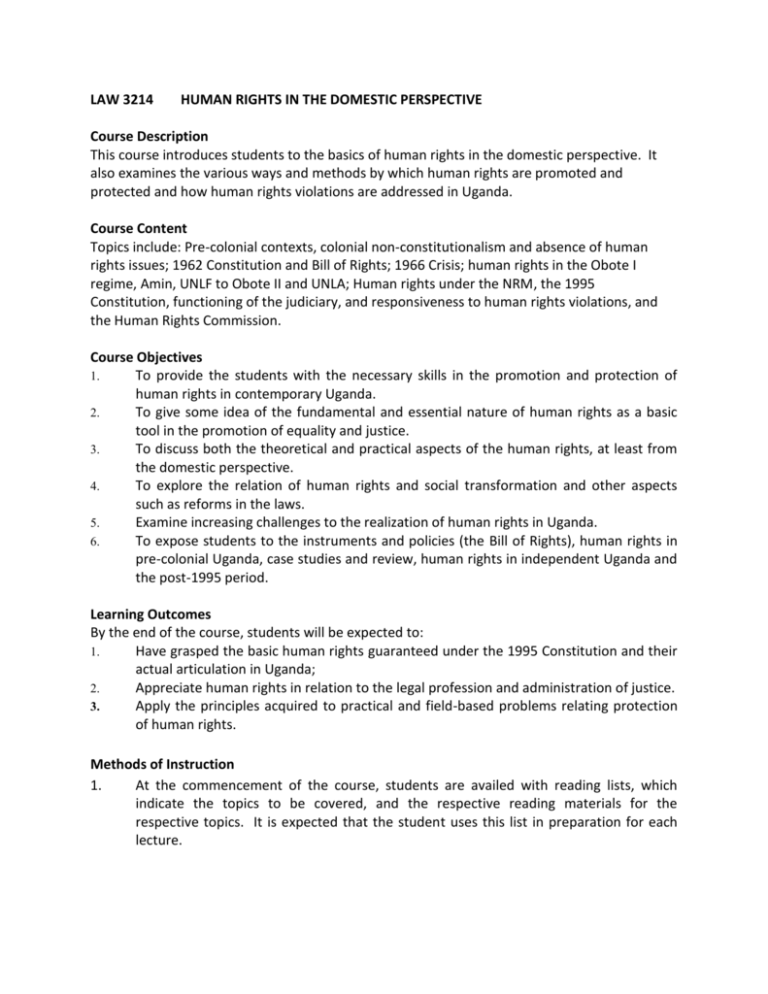
LAW 3214 HUMAN RIGHTS IN THE DOMESTIC PERSPECTIVE Course Description This course introduces students to the basics of human rights in the domestic perspective. It also examines the various ways and methods by which human rights are promoted and protected and how human rights violations are addressed in Uganda. Course Content Topics include: Pre-colonial contexts, colonial non-constitutionalism and absence of human rights issues; 1962 Constitution and Bill of Rights; 1966 Crisis; human rights in the Obote I regime, Amin, UNLF to Obote II and UNLA; Human rights under the NRM, the 1995 Constitution, functioning of the judiciary, and responsiveness to human rights violations, and the Human Rights Commission. Course Objectives 1. To provide the students with the necessary skills in the promotion and protection of human rights in contemporary Uganda. 2. To give some idea of the fundamental and essential nature of human rights as a basic tool in the promotion of equality and justice. 3. To discuss both the theoretical and practical aspects of the human rights, at least from the domestic perspective. 4. To explore the relation of human rights and social transformation and other aspects such as reforms in the laws. 5. Examine increasing challenges to the realization of human rights in Uganda. 6. To expose students to the instruments and policies (the Bill of Rights), human rights in pre-colonial Uganda, case studies and review, human rights in independent Uganda and the post-1995 period. Learning Outcomes By the end of the course, students will be expected to: 1. Have grasped the basic human rights guaranteed under the 1995 Constitution and their actual articulation in Uganda; 2. Appreciate human rights in relation to the legal profession and administration of justice. 3. Apply the principles acquired to practical and field-based problems relating protection of human rights. Methods of Instruction 1. At the commencement of the course, students are availed with reading lists, which indicate the topics to be covered, and the respective reading materials for the respective topics. It is expected that the student uses this list in preparation for each lecture. 2. The students are introduced to each topic and guided on the principles therein. Thereafter, students will be given problem questions for discussion in class. Students are further encouraged to also formulate their problems for discussion during the lectures. Assessment 1. A coursework will be administered during the coursework week to be marked out of 30 marks. 2. An examination will be given at the end of the semester to be marked out of 70 marks.


